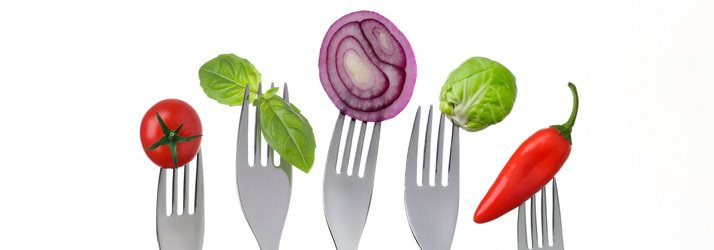The 10 Easiest Vegetables to Grow in Asheville NC

I found this great article on the Sparkpeople.com site which I think you will like. Gardening is a hot topic in my Asheville - Fairview Family Chiropractic office. Good nutrition is always a topic as we do nutritional counseling as part of our daily practice. So this article is for those who are looking to get the freshest foods possible, those right out of your own garden.
Ease into the Garden with These Plants
-- By Jenny Sigler, SparkPeople Contributor
New to gardening in Asheville NC?
New to gardening? Worried that planting your first edibles will turn out to be fruitless labor? Fear not, novice gardener! While not totally foolproof, certain plants are ideal for gardening neophytes who want to increase their chances of gardening success. Here's a list of the top 10 easiest vegetables you can grow, regardless of skill level or age.
1. Carrots
Find a plot of soil (or a deep pot) that is free from rocks and deep enough to handle this root vegetable. Rocky soil can result in crooked carrots that, while perfectly edible are not the most aesthetically pleasing. Carrots are ready for harvest when their tops breach the soil line. Scarlet Nantes, Danvers Half Long, and Sweet Treat are three varieties to try.
2. Green Beans
There are many different kinds of beans, but "broad beans" are one of the easiest vegetables to cultivate. Bush beans are more productive, but broad beans are easier to manage. Pole beans, while easy to grow, also need a trellis. Beans freeze and can extremely well, too! Try Kentucky Wonder and Contender varieties.
3. Lettuce
A salad fresh from your yard is unbeatable! Luckily, lettuce--a vast category of plants that includes microgreens (tender lettuce greens that are chopped when barely a few weeks old), head lettuces, leaf lettuces, spinach, and arugula--is an easy plant to grow and maintain. Do successive sowings every two weeks to space out your harvest. Look for Buttercrunch, Salad Bowl, or Rocket (arugula) seeds.
4. Cucumbers
If you let them, cucumber plants will sprawl, so provide your plants with ample space to stretch their roots. Try smaller varieties to make your own homemade pickles! Be sure to avoid planting cucumbers until all danger of frost has passed. My favorites are Diva, Straight Eight, and Salad Bush Hybrid.
5. Spinach
Spinach is remarkably high in iron and is a wonderful addition to salads, omelets, and soups. You can pick it continuously once its leaves are of a reasonable size to encourage new growth. Check out varieties like Renegade, Melody Hybrid, and Baby's Leaf.
6. Tomatoes
With a little water and a lot of suns, tomato plants will grow and fruit all summer long! Most people prefer to buy starter plants from nurseries or home improvement stores, which is an easy, time-saving way to start. Tomatoes are fragrant and nutrient-rich, and nothing can beat the taste of a freshly picked homegrown tomato! You'll enjoy Big Boy, Beef Steak, and Roma tomatoes.
7. Radishes
Radishes are ideal for beginner gardeners. Plant seeds directly into the garden in early spring or fall for a peppery addition to your favorite salads. Choose from Cheriette, Cherry Belle, and Scarlet Globe.
8. Bell Peppers
Like tomatoes, starter bell pepper plants are widely available at nurseries and home improvement stores. They make a crunchy additive to salads, add a pop of color to soups, and act as a nutritious complement to kabobs. Try California Wonder, Gypsy, and Big Bertha
Squash is a high-yielding plant, so you will probably only need a few plants to feed an entire family. Squash plants dislike the wind, so be sure that your plot has some protection. Harvest when the plants are about 8-10 inches long. Your family will love Green Bush, Gold Rush, and Sure Thing varieties.
10. Basil
An essential additive to cooking, this aromatic herb isn't just for lovers of Italian cuisine! You can grow basil in pots or in the ground-even indoors on a sunny windowsill. Sow seeds directly into the garden in early June in a sunny, well-drained area. When the leaves reach a desirable size, just pluck them from the plant and wait as the basil continues to provide fragrant and flavorful leaves that you can also dry and use long after summer is past. Genovese, Sweet, and Magical Michael basils are good varieties to try.
If you can not grow your own remember that you can go to a local Farmer's market where they are locally grown helping to employ your local farmers and save our environment by not shipping across s the world or country.
If you would like to schedule a visit at our Asheville NC office at 16 Winterwind Dr. 28803 call us today at (828) 299-4555
OFFICE HOURS
Monday
7:45am - 12:30pm
3:15pm - 5:45pm
Tuesday
10:00am - 12:30pm
Wednesday
7:45am - 12:30pm
3:15pm - 5:45pm
Thursday
7:45am - 12:30pm
3:15pm - 5:45pm
Friday
Closed
Saturday & Sunday
Closed
Asheville Chiropractor
16 Winterwind Dr
Asheville, NC 28803



